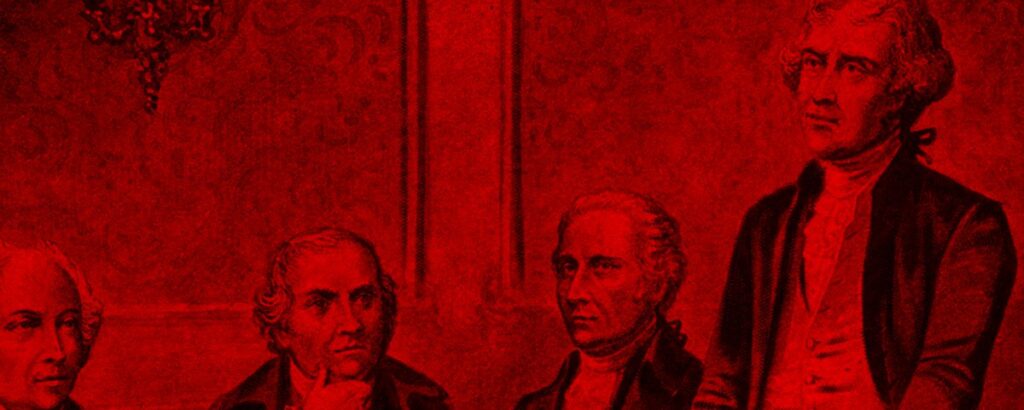
America’s Founders Hated Democracy
Modern American politics has a religious reverence for democracy. Both major political parties sing its praises and routinely portray their opponents as unique threats to the democratic order. The 2024 election cycle has proven this beyond all doubt, and nearly every political speech includes an unambiguous commitment to preserving the system. No idea gets as much praise and lip service in political discourse.
Despite all the worship, though, the men who designed and ratified America’s political system were no fans of democracy. In fact, they completely detested the idea.
The American founders feuded on a host of issues, but the view that democracy was a repulsive form of government united even those with divergent views on the US Constitution itself.
This was because of the prevailing view that democracy inspired mob rule—a systematic violation of rights—where political minorities could easily be oppressed by political majorities.
As James Madison put it, “there is nothing to check the inducements to sacrifice the weaker party or an obnoxious individual” under a democracy.
George Washington, who is widely considered the father of his country, believed Americans were frequently deceived, and therefore could not make informed decisions. “It is one of the evils of democratical governments, that the people, not always seeing and frequently misled, must often feel before they act right; but then evil of this nature seldom fail to work their own cure,” he admitted.
Elbridge Gerry observed that tyranny seen in his generation flowed “from the excess of democracy.”
Edmund Randolph observed that the primary function of the Philadelphia Convention to “provide a cure for the evils under which the U. S. laboured,” and that “in tracing these evils to their origin every man had found it in the turbulence and follies of democracy.”
Patriot doctor Benjamin Rush declared that “a simple democracy is the devil’s own government.”
George Mason remarked that democracy inspired “oppression & injustice.”
Alexander Hamilton believed that “the ancient democracies in which the people themselves deliberated never possessed one good feature of government. Their very character was tyranny; their figure deformity.”
According to Fisher Ames, “a democracy is a volcano which conceals the fiery materials of its own destruction.”
John Adams declared that democracy “never lasts long,” and that “there is never a democracy that did not commit suicide.”
During the ratification struggle, Madison reiterated that democracy could deliver “no cure for the mischiefs of faction,” and that democratic governments “have ever been found incompatible with personal security or the rights of property; and have in general been as short in their lives as they have been violent in their deaths.”
These sentiments persuaded the Philadelphia Convention that drafted the Constitution to create the Senate—in which each state was equally represented—and reject Virginia’s proposal to form two houses that would be apportioned by state population.
Moreover, the body created an electoral system where the president would be chosen by a small body of electors—not the general public—and a judiciary that would be filled by appointments rather than by democratic elections. Finally, amending the document required a supermajority of member states rather a majority of individual Americans. Each of these decisions reflected the founders’ widespread belief that democracy was a failed Greek experiment with horrific results.
Despite all of this, government schools, the corporate media, establishment historians, and both major political parties continually repeat the erroneous idea that democracy is superior to all other forms of government, and argue that such a political system must be maintained at all costs.
The push to elevate democracy over republicanism in the US is a modern phenomenon that began in the Progressive Era. Woodrow Wilson’s insistence that “the world must be made safe for democracy” was no doubt the catalyst for the contemporary obsession with exporting democracy through force.
Indeed, neoconservatives in the United States have justified countless wars, regime changes, foreign occupations, and drone strikes on the basis that Wilson’s words should be stretched to their maximal ends.
The real legacy of modern democracy is crystal clear. The Espionage Act of 1917, The Federal Reserve Bank, the entry into World War I, the income tax, economic eugenics, conscription, and the eradication of state representation in Congress through the 17th Amendment illustrates how the poison fruits of democracy have perverted America’s first principles. The rights of millions of Americans were simply legislated away by Congress and the bureaucratic state it created.
In contrast, the American founders keenly observed that democracy was a hindrance to liberty, a plague that would inevitably eradicate the rights of individuals over time. While purporting to “give everyone a say,” democracy ironically robs political minorities of their say through majority rule votes—which would leave that generation stunned. The dangers they warned about have rematerialized in an American age that worships democracy, the system Hans-Hermann Hoppe rightly characterized as “the God that failed.”

Dave Benner is the author of “Thomas Paine: A Lifetime of Radicalism” and “Compact of the Republic: The League of States and the Constitution”. He contributes articles to the Mises Institute, Tenth Amendment Center, and Dissident Media.
<a href=“https://substack.com/@dbenner” target=“_blank”> <img src=“https://upload.wikimedia.org/wikipedia/commons/4/42/Substack_logo.png” alt=“Substack” width=“24”> </a> <a href=“https://www.tiktok.com/@dissidentpulse” target=“_blank”> <img src=“https://upload.wikimedia.org/wikipedia/commons/0/0a/TikTok_logo.png” alt=“TikTok” width=“24”> </a>

Leave a Reply